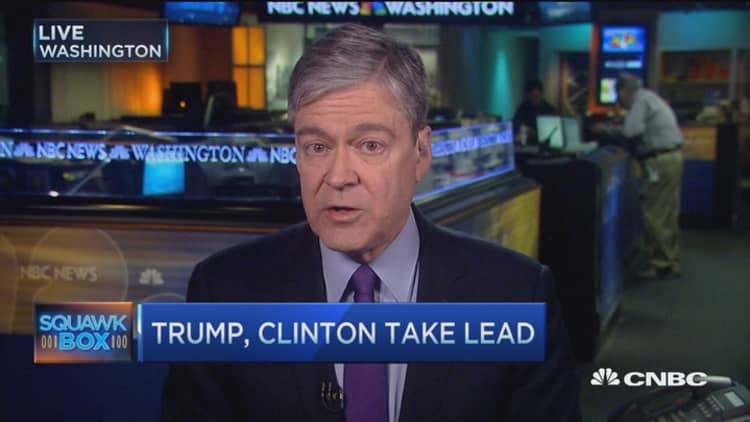
Two thousand miles apart, voters in both parties on Saturday moved the nation closer to a November presidential election pitting Hillary Clinton against Donald Trump.
In Nevada, Clinton withstood the surge of support Bernie Sanders to win a narrow but clear victory in Democratic caucuses. In the first big test of his ability to make inroads among non-white voters loyal to the former First Lady and Secretary of State, Sanders made progress among Latinos. But it was not enough progress to win, which augurs well for Clinton's prospects in upcoming Southern contests where African-American voters play a larger role and have backed her overwhelmingly.
In South Carolina, Trump defied predictions that his unlikely campaign would fall to earth after a debate performance in which he harshly attacked former President George W. Bush, after the state's Republican leaders rallied against him, and after he scrapped publicly with foils as prominent and diverse as Pope Francis and Apple CEO Tim Cook. He captured a third of the vote in a fractured field, won by a double-digit margin, and drew as many voters to the polls as pre-election surveys had indicated.
The bombastic billionaire still faces fierce resistance. U.S. Sen. Marco Rubio of Florida, who edged Ted Cruz of Texas for second place, will now attempt to consolidate and rally Republican office-holders and donors aghast by the possibility that a Trump nomination could lead to lopsided defeat in November.
The decision by Jeb Bush — the quintessential "Republican establishment" figure in the race — to suspend his campaign after another weak showing on Saturday provided encouragement for Rubio. Yet broad support from Republican leaders, led by Gov. Nikki Haley, proved insufficient for him to run close to Trump in South Carolina, And Ohio Gov. John Kasich, who placed second in New Hampshire, soldiers on to fight Rubio for mainstream support in hopes of rising in Midwest and Northeast states voting in March.
Cruz, for his part, cast himself on Saturday night as Trump's principal rival. In a party that has grown increasingly ideological in recent decades, he claims the mantle of conservatism against Trump's largely indeterminate political philosophy. Because a slew of conservative Southern states hold primaries on March 1, the Texan insists he yet can defeat Trump by consolidating the right.
But he failed to do so in South Carolina with a conservative electorate dominated by the evangelical conservatives Cruz has ardently pursued. It didn't help that retired neurosurgeon Ben Carson siphoned away a critical chunk of conservative Christians. Carson, rankled by Cruz' hardball tactics in the Iowa caucuses, vowed on Saturday night to remain in the race.
Powered by his strong appeal to blue-collar voters, Trump actually defeated Cruz among conservative Christians. And he ran strongly enough among college-educated voters to prevent either Cruz or Rubio from seriously threatening him.
Last week's NBC News/Wall Street Journal poll signaled that both Cruz and Rubio could outpace Trump if the contest were narrowed to a two-candidate race. But there's no sign that Trump will face such a contest anytime soon — which strengthens his position as the clear Republican front-runner.



